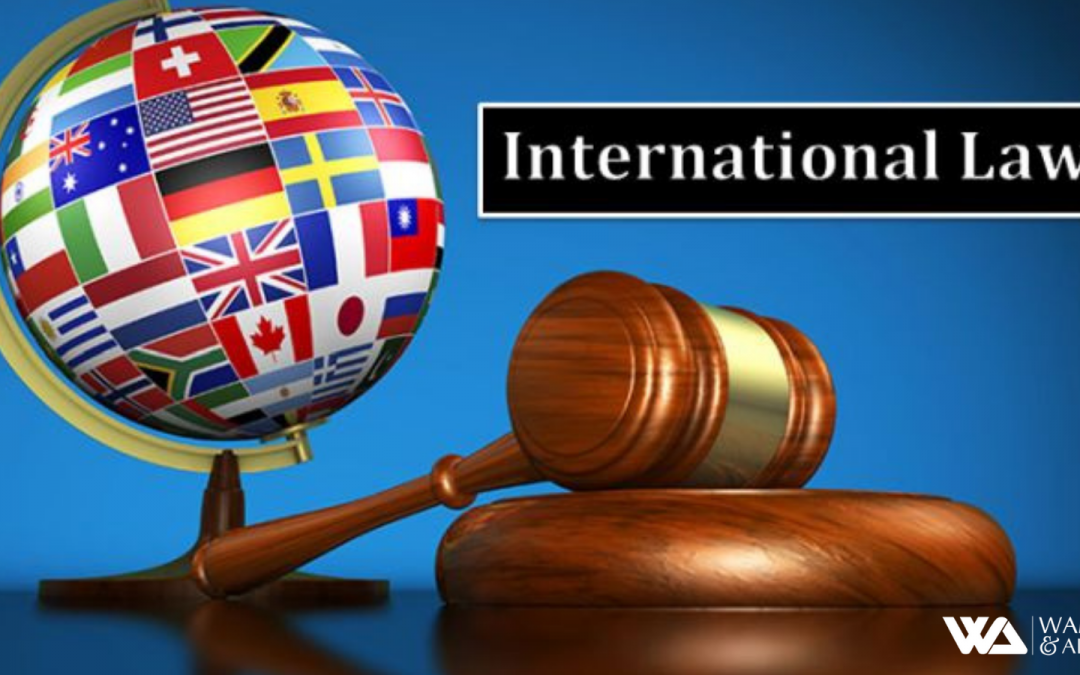The East African Court of Justice (First Instance Division), herein after knowns as ‘EACJ”, on the 30th of November 2020 ruled in a highly contested suit that indeed it has the jurisdiction to interrogate the decision of the Kenyan Courts including the Supreme Court of Kenya with a view to determining its compliance with the treaty. In light of Jeremy Bentham and John Austin’s scathing criticism of International law and natural rights, one can just imagine what they would have to say if they had the opportunity to Interrogate the EACJ’s decision.
Being a firm proponent of legal jurisprudence, I argue that in every legal argument there has to be a jurisprudential underpinning. John Austin the famous author of the book ‘The Province of Jurisprudence Determined 1832’ is famous for arguing that international law is not law. His mentor and teacher, Jeremy Bentham, is also famous for referring to natural rights and the concept of International law as ‘nonsense upon stilts’.
However, as jurisprudence is filled with arguments and counter arguments, we have scholars such as Hugo Grotius, the father of international law, who will argue that international law is still binding once consented to and that it still has the force of law even though it’s different from domestic law. It then follows that in this case, there was one side prescribing to Austin and Bentham’s jurisprudential school and there was also another side prescribing to Grotius’ jurisprudential school of thought. The question then that lingers in the minds of many with regards to the EACJ’s judgment is: What was the legal basis for the EACJ to rule that the decision of the Supreme Court of Kenya on Martha Karua’s petition was unfair and contrary to the right to fair trial and access to justice?
The brief facts of the matter are that Martha Karua participated in the Kirinyanga gubernatorial elections in 2017 which was won by Governor Anne Mumbi Waiguri. Dissatisfied by the results, she lodged a petition at the High Court of Kenya in Kerugoya. That petition was struck on account that there was failure to comply with Electoral laws. She thereafter successfully appealed against the decisions at the Court of Appeal which Court allowed the appeal and remitted the matter back to the High Court for determination on its merits. The matter was again dismissed by the High Court and the Petitioner, Martha Karua, appealed to the Court of Appeal which also dismissed the appeal citing that the High Court lacked jurisdiction to entertain the petition after the lapse of the 6 months period providing by law for hearing of such petitions. The Court of Appeal’s decision was upheld by the Supreme Court of Kenya and this necessitated Martha Karua to lodge a reference (suit) at the East Africa Court of Justice.
The first issue that the Court addressed was on jurisdiction and it rightly found that it had the jurisdiction to entertain Martha Karua’s reference which sought to question the Supreme Court’s decision. However, the Court noted that this mandate is only with a view to determining the Supreme Court’s compliance with the Treaty Establishing the East African Community. The Court in coming to this conclusion relied on the case of the East African Civil Society Organisations’ Forum (EACSOF) vs. The Attorney General of the Republic of Burundi & Others which held that the EACJ can exercise jurisdiction if the matter in question was on a country’s international responsibility under both international law and the EAC treaty. The Court noted that its trite law that nation states can be held internationally responsible for the actions of any state organ, including judicial organs or courts.
The second issue that the EACJ addressed was also a preliminary issue on whether the matter before it was time barred and whether there was a cause of action disclosed by the reference. Article 30 (2) of the EAC Treaty provides that a reference should be lodged within 2 months of the alleged directive or decision complained of. The EACJ held that since the issue was on the Supreme Court’s decision which was delivered on 7th August 2019, the reference was filed within time having been filed on 4th October 2019. On the issue of cause of action, the Court held that there was a cause of action since the reference raises a legitimate question. The Court further held that the matter complained of is alleged to violate both national law and the EAC treaty. In coming to this determination, they cited various cases among them; British American Tobacco (BAT) Limited vs. The Attorney General of the Republic of Uganda which held that violation of municipal law gives rise to a cause of action.
The third and substantive issue that the EACJ addressed was on whether the Supreme Court’s acts and or omissions violated the EAC treaty, especially the right to access to justice and a fair trial. It was alleged by Martha Karua that the Supreme Court failed to interpret the Section 75 (1) of the Elections Act within the precincts of Article 48, 50, 105, 159 and 259 of the Constitution hence breaching Articles 6 (d) and 7 (2) of the EAC Treaty. The Learned State Counsel defended by stating that the EACJ cannot delve into Kenya’s electoral laws as such would amount to overstepping its mandate. The EACJ relied on the case of Henry Kyarimpa vs The Attorney General of the Republic of Uganda and stated that in assessing treaty compliance the EACJ has the powers to inquire into Partner States’ adherence with their domestic laws. The Court further analysed the issue and found that indeed the Supreme Court did not interpret the constitution in a manner to advance the right to access to justice.
In addition, the Court held that even though the Elections Act was silent on the issue of time frame and extension of time where an appeal was lodged and remitted, the Supreme Court had a duty to address that lacuna present in a manner that promoted equity and social justice. The EACJ thus finally held that failure to do this by the Supreme Court of Kenya was a breach of Articles 6 (d) and 7 (2) of the EAC treaty which promote good governance, rule of law and social justice. Finally, the court found that Kenya through it’s Supreme Court was liable for breach of the EAC treaty hence it proceeded to award monetary damages to the tune of US $ 25,000 at an interest of 6% per annum.
The right to fair trial and access to justice form part of the Bill of rights. Suffice, the right to fair trial is one of the non-derogable right under article 25(c) of the Constitution that all state actors are bound to adhere to. Indeed, there cannot be any right without a remedy and the Supreme Court was bound, while applying a purposive interpretation of the Constitution, to provide a remedy on the enforcement of the twin rights of fair trial and access to justice.
It goes without saying that this decision was an indictment on the Kenyan apex Court on how it applied Article 259 of the Constitution. The Supreme Court, according to the EACJ applied a narrow interpretation of the Constitution as opposed to the purposive one thus leading to a violation of the Applicant’s rights under Articles 48 and 50 of the Constitution on fair hearing and access to justice respectively. The EACJ noted inter-alia:
“[56]. It will suffice to point out here that the matter before the Supreme Court was no longer an electoral matter but a search for a constitutional solution to a legal problem. Sitting as such, the Supreme Court would be the judicial organ mandated to provide a just and equitable solution to the identified procedural debacle, where no time is allotted for the hearing if matters on remission. The Kenyan Constitution does, in our considered view, provide an appropriate legal framework for the solution to the unjust circumstances that the Applicant found herself in.
[57] Article 48 represents an unequivocal commitment by the Respondent state to ensure access to justice for all persons. Article 159 on the other hand, encapsulates the principles that should guide Courts in the exercise of their judicial authority. Article 259 then provides a more focused outlook on how the Constitution should be construed against, we propose, the backdrop of the values and principles outlined in Article 10 thereof. Therefore, the solution to the Applicant’s dilemma was to be found in the application of the interpretation rules espoused in Article 259, against the yardstick of the values and principles set out in Article’s 10 and 159 of the Kenyan Constitution. It is on that premise that we interrogate the issue before the Court
[59] We take the considered view that it is against the totality of the foregoing legal background that Article 259(8) is couched in the terms it is. A holistic interpretation of that provisions would thus suggest that in the promotion of access to justice, equity and social justice, where a Court sitting in interpretation of the Constitution finds that a particular time frame is not prescribed therein, it is urged to construe and remedy the lacuna in such a manner as would ensure that ‘the act shall be done without unreasonable delay’….”
The foregoing excerpts forms the basis of the Court’s finding. It is a grave indictment on the Supreme Court on how it interprets the Constitution. The EACJ seems to be instructing the Supreme Court to approach a purposive and holistic interpretation of the Constitution to enforce the rights of Kenyan as opposed to a narrow and restrictive interpretation of the Constitution that tends to deny a right.
Indeed, the decision the subject of the Reference at EACJ is not in line with the Court own decision in Jabir Singh Rai & 3 others vs. Tarlochan Singh Rai, Estate of & 4 others [2013] eKLR where the Honourable the Chief Justice rendered himself in his concurring judgement as follows:
“The right to fair trial, however, applies to everyone, not just those who were denied the right because of the misconduct of judges who then voluntarily or involuntarily left the bench. It also applies to those litigants whose rights were violated even though their respective judges had been found suitable by the Judges and Magistrates Vetting Board, or who did not have to be vetted under the Act. If the right to fair trial belongs to everyone, the remedy must also belong to everyone.
Suffice to add, the Supreme Court ought to have been alive to Article 10 of the Constitution that has elevated equity as one of the national values that the State, including the Judiciary ought to enforce. In the case of Macharia Mwangi Maina & 87 Others v Davidson Mwangi Kagiri [2014] eKLR the Court of Appeal held:
“This Court is a court of law and a court of equity; Equity shall suffer no wrong without a remedy; no man shall benefit from his own wrongdoing; and equity detests unjust enrichment. This Court is bound to deliver substantive rather than technical and procedural justice
In conclusion, the Judgment has its merits and demerits. Whereas legal practitioners who subscribe to Austin and Bentham’s school of thought will think of this judgment as an affront to state sovereignty many other proponents of International Law will argue that Kenya ratified the EAC treaty and consented to be bound and in the spirit of “Pacta Sunt Servanda”- let agreements be kept. The finality runs down to which school of thought an individual prescribes to. However, the decision is a stark reminder to the Kenya Courts that they ought to apply a purposive and holistic interpretation of the Constitution to advances a right as opposed to a narrow and restrictive interpretation which deny a right. Further, that there can be no legal lacuna without a legal remedy and the Supreme Court as an apex Court ought to apply the Constitution to provide remedies to such lacunas.
This article is provided free of charge for information purposes only; it does not constitute legal advice and should not be relied on as such. No responsibility for the accuracy and/or correctness of the information and commentary as set out in the article should be held without seeking specific legal advice on the subject matter. If you have any query regarding the same, please do not hesitate to contact Caxstone Phelix Kigata vide Caxstone@wamaeallen.com
About the author
Caxstone specializes in civil, employment and labour disputes, constitutional law, family law and succession, and environment and land matters. He has amassed a wealth of knowledge and experience in litigation which is evident in the successes obtained for clients. He is an active member of the Employment and Labour Relations Court Bar-Bench committee.











